
Bouldering Tips
for Beginners
New to indoor bouldering? Here are some of our top tips based on the questions we are asked the most by new climbers at Depot Climbing.
Free Coaching Videos
Make sure you do a proper warm-up
Indoor Bouldering is a full-body activity, so make sure to do a full warm-up!
This will help prevent injuries (both immediate and long-term chronic injuries) and is one of the biggest factors in letting you have a great session.


Learn to relax in your climbing
A lot of new climbers over-rely on pulling up with their biceps and neglecting the legs.
By relaxing your shoulders and allowing your arms to hang straight rather than at right angles, gives space and time for you to look around and place your feet precisely and easier.
This also helps regulate your breathing – allowing you to climb for longer without getting pumped!


Make sure you are using the right shoes
The world of climbing shoes can be bizarre, overwhelming, and sometimes scary, so make sure to speak to one of our fabulous staff members about the best shoes for you.
Having your own pair of climbing shoes that fit will give you confidence and vastly improve your climbing experience.
Your own shoes conform to your foot shape, reducing dead space and discomfort when climbing.
The perfect shoe should fit snugly but not painfully, and getting some help to make find the shoe to fit your foot is a must with climbing shoes as each fits differently.
See our range of climbing shoes here.
Free Fitting Service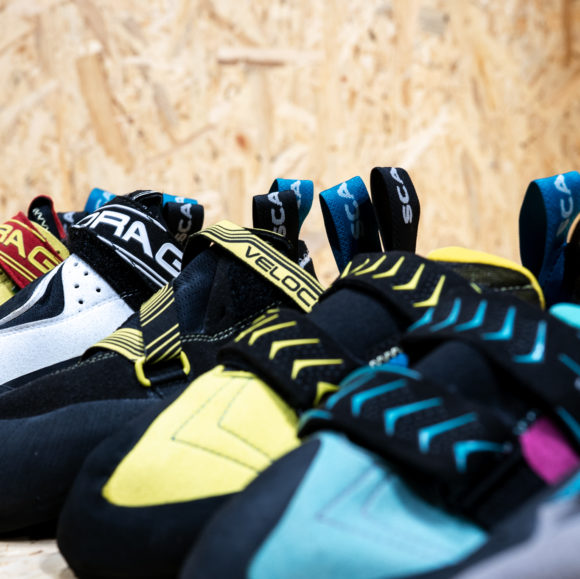

Push through your toes
Now you’ve got your own pair of climbing shoes, time to work on that technique.
When you’re warming up and climbing below your max grade, try to climb with ‘quiet feet’.
To do this, slowly and carefully place your toe on the hold as silently as possible and then push all the way through your toes.
You should only be using the toes though – try not to step on your midsole when you are climbing.
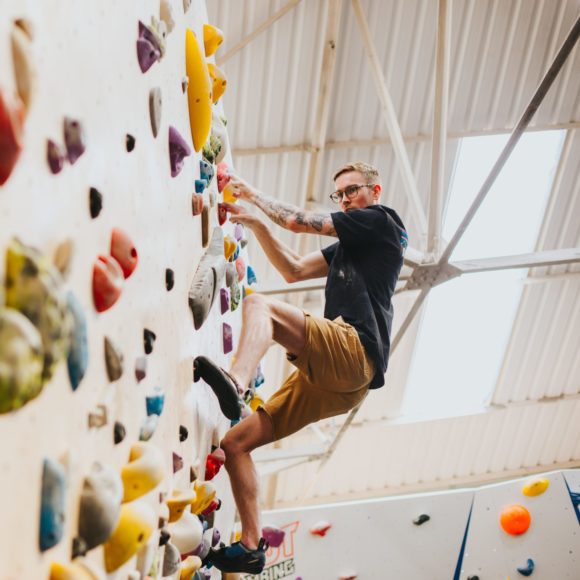

What is climbing chalk?
Climbing chalk is a fine powder that is either loose or sealed in a small bag and it improves your grip when climbing.
Chalk is typically magnesium carbonate, and is what you will see in the bouldering buckets and chalk bags that people have on the matting with them – and what makes the holds go white when people use them.
However, if it is overused on a climb it can lose the texture of the holds, so people use chalk brushes to remove the excess from holds.
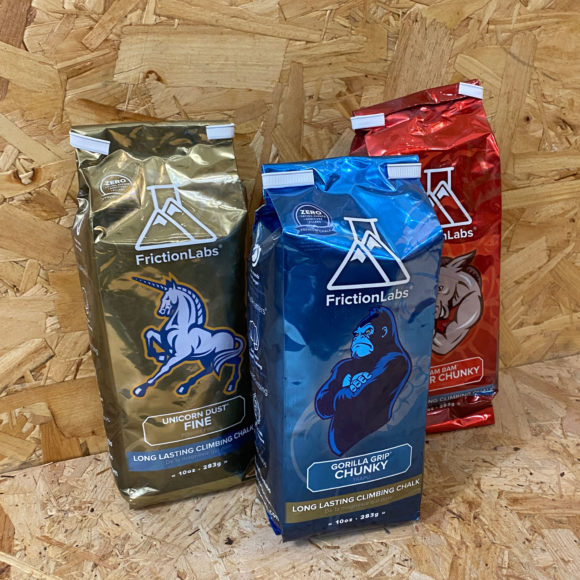

Find some ‘partners-in-climb‘
Although sometimes this isn’t always possible, having a regular group of climbers you climb with helps improve your climbing.
It gives you more chances to watch other people, pick up more techniques, ask for advice, and give you a chance to rest easier between climbs.
Our weekly women’s social nights and improvers sessions are a great place to get started if you are new to indoor bouldering.
Otherwise don’t be afraid to get talking to other climbers and staff during your sessions – the Depot Climbing community is a friendly bunch.
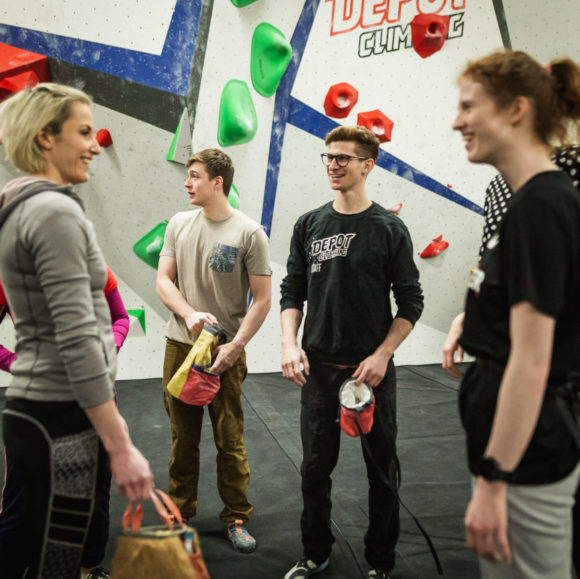

Don’t get hung up on the same climb
Although it can be easy to get absorbed working on one climb, and there’s definitely a time and a place for this, remember that there are plenty of other climbs of different styles, angles, hold types, and movements.
So if you start to become frustrated with a certain climb, just move on – there are plenty of others to be trying.
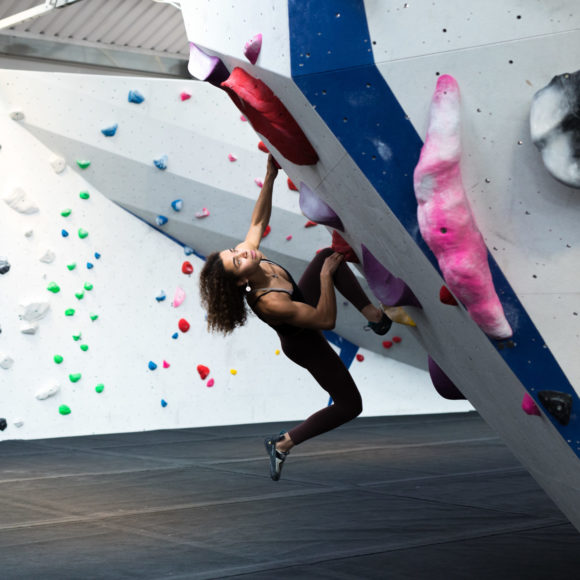

Try not to treat grades as gospel
Grades and colours in the Depot Climbing centres are a great way to quickly and easily compare the difficulty of a problem, however, try not to get hung up on them. Over-focusing on the grade your climbing can be detrimental to progress.
Our grades are easy to navigate by colour, and each wall has a display on the wall explaining each one.
There is a massive importance of the style of climbing which effects your grade, you might be able to climb a red on an overhang but only a blue on a slab.
Use grades as indicators for what may be beneficial to work on, rather than as the only indicator for progression that you rely upon.


Avoid over-gripping holds
When you are starting, it is a completely natural thing to grab and latch onto a hold like your life depends on it. This can lead to becoming ‘pumped’ and tired in the forearms.
If you are climbing and it feels like only your forearms and fingers are the only areas of the body that feels tired this is a good indicator that you are over-gripping.
In time, you will learn the right amount of grip you need to hold on without wasting any energy and getting pumped.
A good training tip is to start on a quiet area of the wall low to the ground and stand on two small foot holds, and find two hand holds about shoulder level.
From there, slowly reduce the amount of grip on the hold until you feel yourself starting to fall. By practicing this you will find the right amount of grip you need to keep you on the wall without over-gripping.
Then go on some easy green or white climbs and focus on holding the holds with just the right amount of grip without falling off or over-gripping. This will mean that soon you’ll be doing this without thinking on all of your climbs!
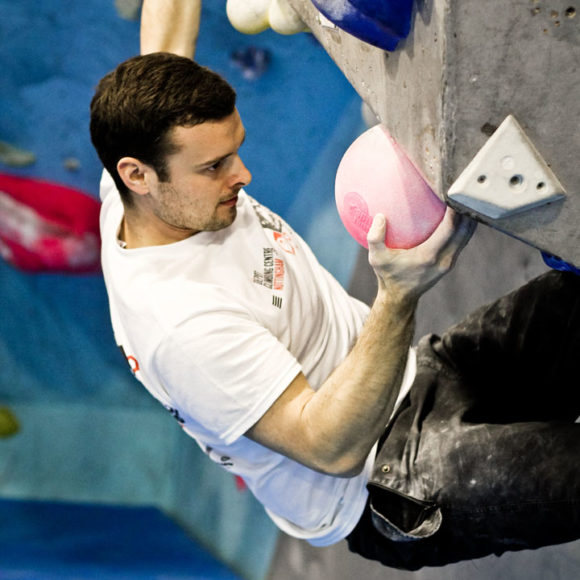

Take plenty of rests
Make sure to be taking rest between your climbs to let your body recover, it’s easy to get carried away when indoor bouldering.
Resting gives time for your muscles to recover and also gives you time to look at the climb and plan for your next attempt.
There’s a reason that when you look around the centre a vast majority of climbers are having a sit down in the middle of the matting!
Just make sure when you are resting that you are sitting away from anyone climbing currently and away from the wall.
Resting is a great way of helping you climb longer, more effectively, and have more fun!
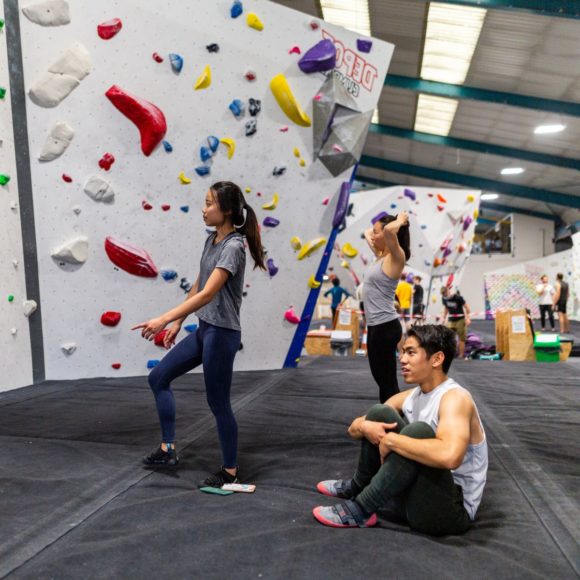

Need more Bouldering Tips for Beginners?
Our friendly staff are on hand to help with your indoor bouldering journey, you can either speak to a member of staff or drop Depot Climbing an email on: [email protected]
Check the link below for more information on other FAQ’s we receive too.